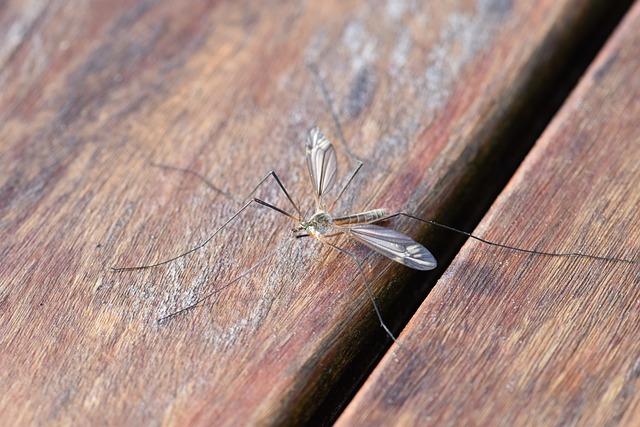With the buzzing of their wings and their persistent pursuit of humans and animals alike, mosquitoes are easily one of the world’s most recognizable – and annoying – insects. While both male and female mosquitoes depend on blood in order to lay eggs, there is a distinct difference in what they eat. In this article, we’ll discover exactly
Overview of Mosquito Diet
Contrary to popularly held beliefs, mosquitoes do not exclusively survive on blood and there is a significant difference between the diets of male and female mosquitoes. While male mosquitoes feed on plant nectar, female species require blood for the development and nourishment of their eggs.
No matter their gender, most mosquitoes can subsist off of a liquid source such as plant nectar, various fruit juices, and honeydew from aphids. Male mosquitoes are strictly vegetarian, preferring the sugary substance found in nectar and the juices of fruits. Meanwhile, female mosquitoes often find the sugar content of these fluids inadequate and seek out the salt and protein that can be found in mammalian blood.
Where Do They Find Their Food?
Mosquito breeding hotspots are quite easy to spot. They often congregate around stagnant ponds and puddles, in stagnant pools of water, on tree leaves and other wet vegetation, in bird baths, and even in water-filled containers that are often found in some urban areas.
Use of Breeding Tactics to Find Food
Male mosquitoes often demonstrate their resourcefulness by developing tactics to locate and consume their preferred food sources. These tactics can include perching on taller plants or rocks in order to maximize their food-finding efficiency.
Do Male Mosquitoes Bite?
Unlike their female counterparts, male mosquitoes do not feed on blood and consequently, are less inclined to bite. While male mosquitoes will fly into humans or animals and even land on them, this behavior should not be mistaken for foraging for a blood meal.
Nutrition Obtained from Food Sources
The food sources that male mosquitoes consume – namely, nectar and fruit juices – are excellent sources of nutrition. In addition to vital sugars and carbohydrates, they also contain essential minerals and vitamins such as magnesium, iron, calcium, and Vitamin B-complex.
Nature of Feeding Habits
The primary feature of a male mosquito’s diet is its high sugar content. To make up for this, male mosquitoes feed on multiple sources in order to provide their bodies with the vitamins and minerals needed to survive. They typically feed on multiple sources at the same time, alternating between plants and trees in order to obtain the essential minerals they need in order to stay healthy.
How Long Do They Feed?
Unlike their female counterparts who require a continual influx of blood in order to produce eggs, male mosquitoes generally feed for only brief periods of time. They typically feed on plants and other food sources for no more than twenty minutes and rarely gather more than a single meal in one sitting.
People Also Ask
Do Male Mosquitoes Eat Blood?
Male mosquitoes do not feed on blood, but rather rely on plant nectar and fruit juices for nourishment.
Do Male Mosquitoes Need Blood?
No, male mosquitoes do not require blood to survive. In fact, they do not feed on blood at all, preferring the sugary substances found in plant nectars and fruit juices.
Do Male Mosquitoes Transmit Malaria?
No, since male mosquitoes do not feed on blood, they cannot transmit malaria or any other blood-borne pathogens.
Can Male Mosquitoes Fly?
Yes, male mosquitoes do possess wings and are capable of flight. However, they typically only fly short distances – no further than the length of a football field – and rely on plant nectar and fruit juices for nutrition.
Final Words
Although male and female mosquitoes share many of the same physical features, there is a vast difference between their respective diets. Male mosquitoes feed exclusively on plant nectar and fruit juices, while female species require blood in order to produce eggs. Despite their reputation for being incredibly annoying, mosquitoes are incredibly resourceful insects, adapting to their environment in order to survive.

